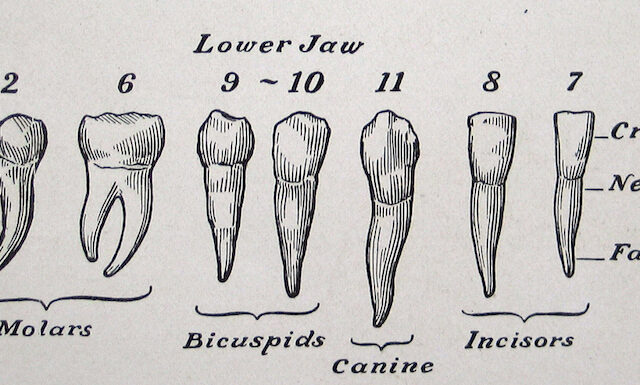The Social And Family Impact Of Gemtesa Disease
Gemtesa is a prescription medicinal drug used to treat overactive bladder (OAB) symptoms, including frequent urination and urgency. While it helps many sufferers manage their circumstances, the outcomes of OAB can make bigger past bodily health, impacting social interactions and own family life. Human beings with OAB may additionally avoid social occasions, journeys, or maybe their own family gatherings as a result of fear of accidents.
This can cause emotions of isolation and frustration. Families may additionally experience the stress as they alter plans and workouts to accommodate their cherished one’s condition. However, remedy selections like Gemtesa can enhance the quality of existence. For those worried about prices, a Gemtesa coupon card can help reduce costs, making remedy extra accessible for folks who need it.
What is Gemtesa Disease?
Gemtesa sickness represents a condition affecting bladder performance, usually leading to overactive bladder (OAB). The signs and symptoms are typically marked via an elevated frequency of urination, urinary urgency, and incontinence. Such symptoms can dramatically impair an individual’s great of life. Treatment options do exist, from treatment to lifestyle interventions, yet the impact of this disease reaches beyond the patient alone to their family and social environments.
Causes and Symptoms
The causes of Gemtesa disease range and may include neurological issues, aging, bladder muscle disorder, or infections. Common symptoms are:
- sudden, severe urge to urinate
- urinating too often throughout the day (more than eight times a day)
- urinating at night, also known as nookyuria
- urinary leakage or incontinence
These symptoms have led to tremendous interference with normal life activities, intercourse, and intellectual well-being.
Social Impact of Gemtesa Disease
Here is mentioned the social impact of gemtesa Disease:
Workplace Challenges
People with Gemtesa ailment often have a hard time keeping regular painting schedules due to constant visits to the restroom and pain. This may lead to:
- low productivity
- process insecurity
- workplace discrimination
The employers and co-workers may not always understand the condition, making the affected character feel embarrassed and socially isolated.
Social Stigma and Isolation
Bladder-related conditions carry social stigma, causing many patients to avoid attending social events. The fear of sudden urges or injuries can cause people to stay away from public outings, and this affects intellectual and emotional well-being. Social relationships may also deteriorate because of a failure to participate in sports.
Psychological Effects
Continual diseases often lead to tension and depression. The inability to control one’s bladder may lead to low self-esteem, vanity issues, and stress. The psychological stress of having symptoms in social settings can be quite overwhelming.
Family Impact of Gemtesa Disease
Below, you may also check out the family impact of gemtesa disease:
Emotional Toll on Family Members
Families of patients with Gemtesa sickness often go through emotional distress. Seeing a loved one struggle may be heartbreaking. Family members might also feel helpless, frustrated, or even guilty for not being able to provide a full remedy.
Financial Burden
The cost of managing Gemtesa disease consists of visits to a health professional, medications, lifestyle changes, and potential home care charges. Health care insurance may not always cover everything, thereby putting families into a broad financial bracket.
Strain on Relationships
Spouses and partners of patients with Gemtesa disease often experience changes in intimacy and emotional bonding. The condition may also limit joint activities, leading to a feeling of estrangement in relationships. Moreover, parents with a child suffering from the disease have to deal with more caregiving responsibilities along with other work and life commitments.
Caregiver Stress
Primary caregivers, a spouse, a toddler, or a figure, among others, typically experience widespread pressure in managing the needs of an affected person, which may consequently lead to burnout, resentment, and possibly even bodily health problems for a caregiver.
Coping Strategies for Families
Education and Awareness
Appreciation of the disorder and available remedy choices is essential. Households can instruct themselves via help organizations, medical professionals, and online sources.
Open Communication
Keeping open conversations about challenges and feelings facilitates each affected person and their family individuals. Acknowledging problems and discussing methods to support each other fosters healthier surroundings.
Seeking Professional Support
Intellectual fitness professionals, support businesses, and counselors can provide guidance for families dealing with the emotional toll of the ailment.
Lifestyle Modifications
Sure adjustments in day by day exercises can help reduce the impact of signs, including:
- Food plan adjustments (reducing caffeine and alcohol intake)
- Scheduled restroom breaks
- Pelvic floor exercises
Community and Social Support
Raising Awareness
More awareness of Gemtesa disease may reduce stigma and help create a more inclusive environment. Public education campaigns, social media advocacy, and community events may help in making the situation normal.
Workplace Accommodations
Employers have to offer flexible painting preparations, on-hand restrooms, and supportive guidelines to assist affected individuals in keeping their professional lives.
Encouraging Support Groups
Help corporations provide emotional encouragement and practical recommendations. Patients and caregivers can proportion their reviews, reducing feelings of isolation.
Conclusion
The impact of Gemtesa sickness extends a long way past the patient, affecting their social existence, circle of relatives dynamics, and emotional well-being. Perception of the sickness, fostering supportive environments, and looking for clinical and emotional assistance are vital in mitigating its outcomes. Households, places of work, and communities should work collectively to create an inclusive area in which affected people are understood and supported. Through elevating attention and encouraging open discussions, society can ease the demanding situations related to Gemtesa ailment and improve the quality of life for the ones residing with it.

